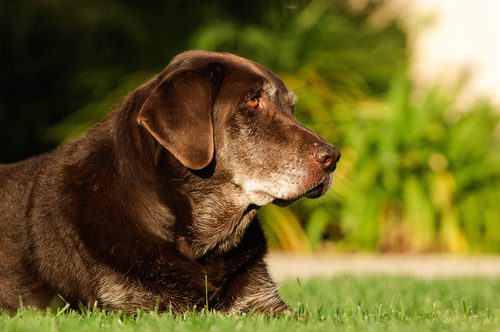Signs Your Dog is Dying of Old Age
As our beloved canine companions grow older, it’s essential to recognize the signs that indicate they may be approaching the end of their life. While it can be a heartbreaking topic, understanding these signs allows you to provide the best care and comfort for your aging dog. At Acton Animal Hospital in Acton, MA, we are here to support you and your pet through every stage of life. If you have any concerns about your dog’s health, call us at 978-263-7477.

Recognizing Changes in Behavior and Personality
One of the earliest signs your dog is dying of old age is a noticeable change in their behavior and personality. Senior dogs may become more irritable or withdrawn. They might show less interest in activities they once loved, such as playing fetch or going for walks. These changes can be subtle at first but tend to become more pronounced over time.
Increased Sleeping and Lethargy
Older dogs often sleep more than younger ones, but a significant increase in sleeping or lethargy can be a sign of declining health. Your dog may appear tired even after minimal activity, preferring to rest more frequently. This increased need for rest is a common indicator that your dog is nearing the end of its life.
Decreased Interaction with Family
Dogs may become less interactive with family members. They might choose to spend more time alone, away from the usual hustle and bustle of the household. This withdrawal is often a coping mechanism as their energy levels diminish.
Changes in Physical Condition
As dogs age, their bodies undergo various changes that can signal the approach of the end of life. Monitoring your dog’s physical condition helps in understanding their needs better.
Noticeable Weight Loss
Weight loss is a common sign of aging in dogs. If your dog is losing weight despite a healthy diet, it could indicate underlying health issues. This weight loss can be due to muscle atrophy, decreased appetite, or metabolic changes associated with aging.
Difficulty Moving
Arthritis and other joint issues become more prevalent as dogs age. You may notice your dog having difficulty standing up, climbing stairs, or even walking short distances. This mobility decline can greatly affect their quality of life.
Changes in Coat and Skin
An aging dog’s coat might become thinner, drier, or more brittle. Additionally, you might notice changes in their skin, such as dryness, lumps, or sores that take longer to heal. These physical changes are often signs of the body’s slowing ability to repair itself.
Health Declines and Symptoms
Aging dogs are prone to a range of health issues that can indicate they are nearing the end of their life. Understanding these symptoms helps you provide the necessary care and make informed decisions about their well-being.
Digestive Issues
Senior dogs often experience digestive problems, such as vomiting, diarrhea, or constipation. These issues can be signs of more serious underlying conditions. If your dog frequently experiences digestive problems, it might be a sign that their body is struggling to function properly.
Respiratory Problems
Breathing difficulties, coughing, or wheezing are signs that your dog’s respiratory system may be failing. These symptoms should not be ignored, as they can indicate serious health issues that need veterinary attention.
Incontinence
Incontinence, or the inability to control urination or defecation, is common in elderly dogs. This can be distressing for both the dog and the owner. It often indicates a decline in bodily functions and requires compassionate management to keep your pet comfortable.
Seeking Veterinary Guidance
When you notice signs that your dog is dying of old age, it’s crucial to seek veterinary guidance. A veterinarian can provide a thorough examination and offer advice on how to manage your dog’s symptoms and maintain their comfort.
Pain Management
Pain management is an important aspect of end-of-life care for dogs. Your veterinarian can recommend medications or treatments to help alleviate pain and improve your dog’s quality of life.
Hospice Care
Hospice care focuses on providing comfort rather than curative treatments. This care can be administered at home with the guidance of your veterinarian, ensuring your dog’s final days are as peaceful and pain-free as possible.
Emotional Support
Caring for a dying dog is emotionally challenging. Seeking support from friends, family, or professional counselors can help you cope with the stress and grief. Acton Animal Hospital is here to offer support and guidance through this difficult time.
Preparing to Say Goodbye
As difficult as it is to think about, preparing for your dog’s end of life is an important part of being a responsible pet owner. This preparation helps ensure that your dog’s final days are spent with dignity and surrounded by love.
Discussing Euthanasia
Euthanasia is a compassionate option when a dog’s quality of life has significantly declined. Discussing this with your veterinarian can help you understand when it might be the most humane choice. Euthanasia provides a peaceful end and relieves your pet from suffering.
Creating a Comfortable Environment
Making your dog’s environment as comfortable as possible can ease their final days. Provide soft bedding, keep them in a quiet area, and ensure they have easy access to food and water. Your dog’s comfort should be a top priority during this time.
Cherishing the Moments
Spend quality time with your dog, offering them affection and reassurance. These moments are precious and can provide both you and your pet with a sense of peace and closure. Understanding the signs your dog is dying of old age helps you make informed decisions about their care and comfort. If you notice any of these signs, contact Acton Animal Hospital at 978-263-7477 for guidance and support. Your pet’s well-being and happiness are our focus, and we are here to assist you through this difficult journey.
Recent Posts
About Us
Our veterinarians in Acton, MA bring over 80 years of combined experience and a multitude of services for your pet.
